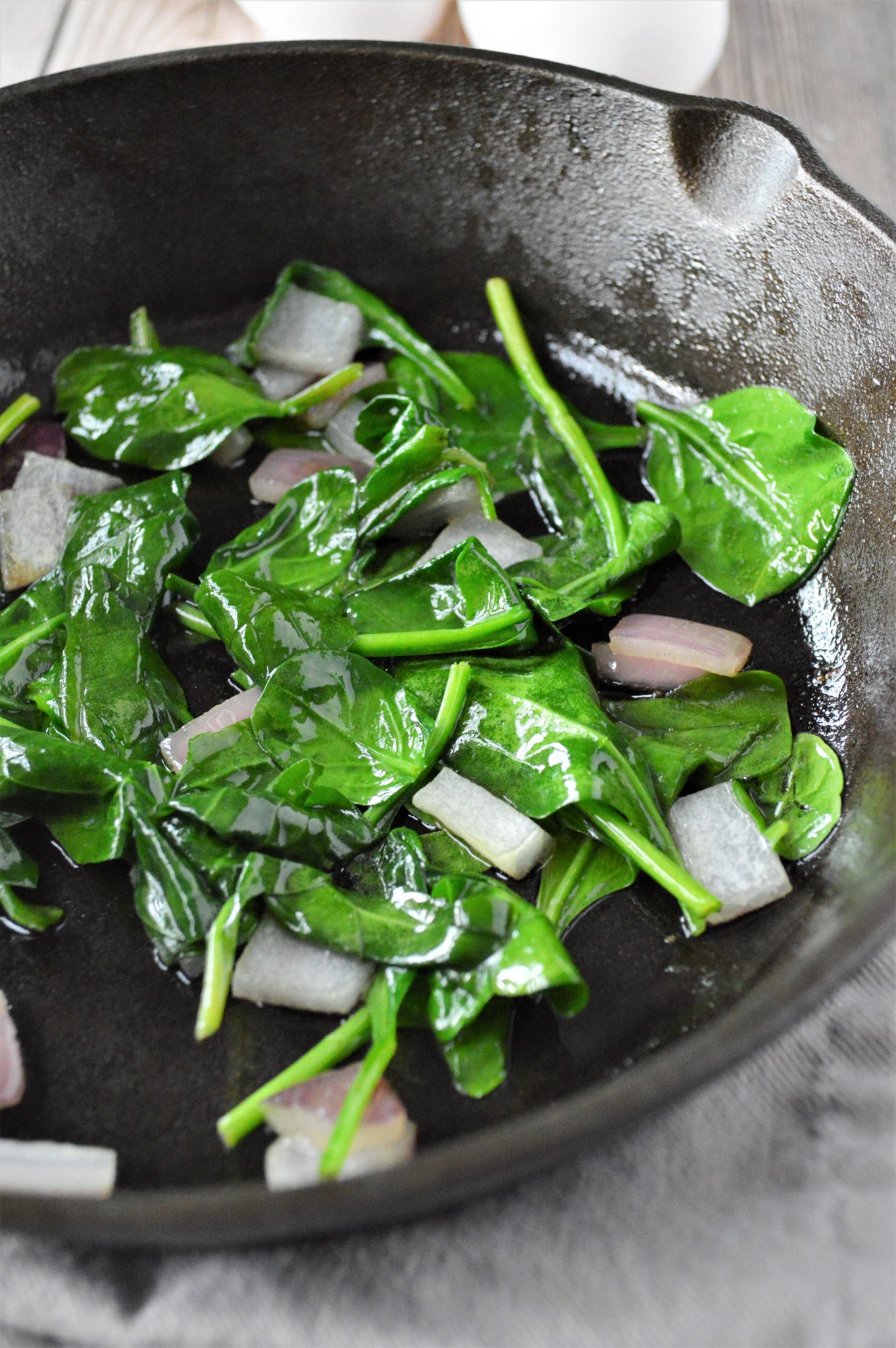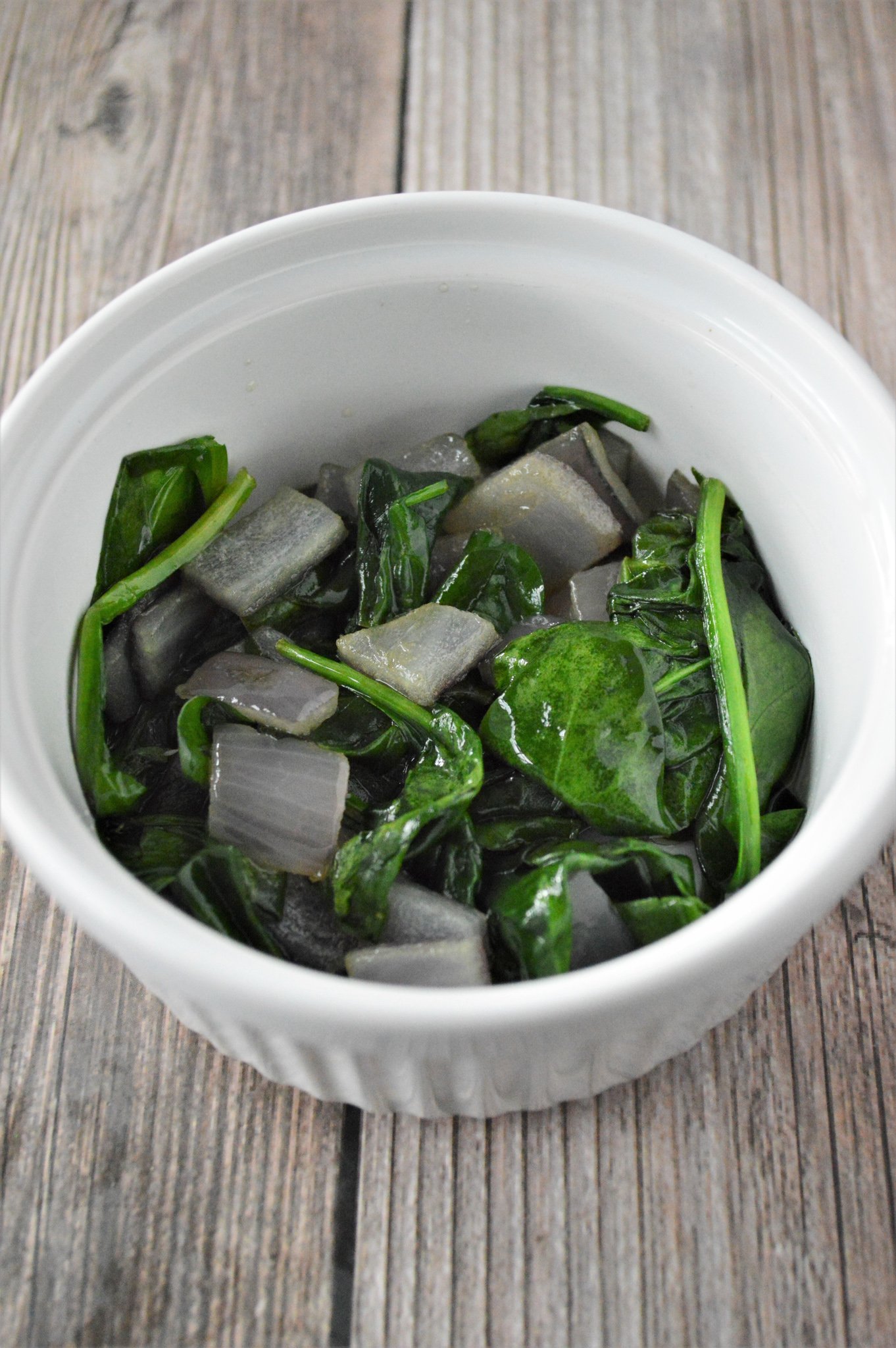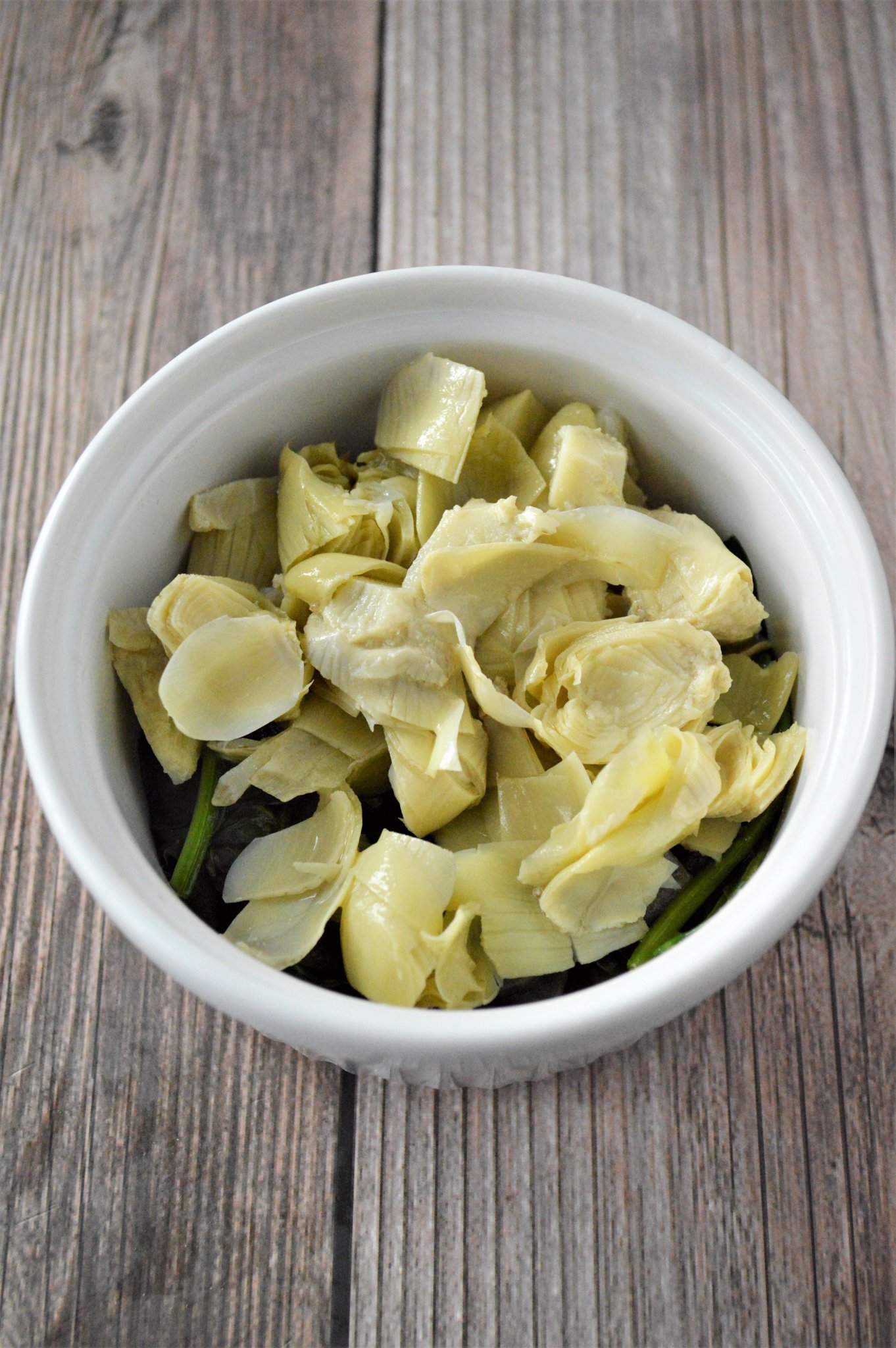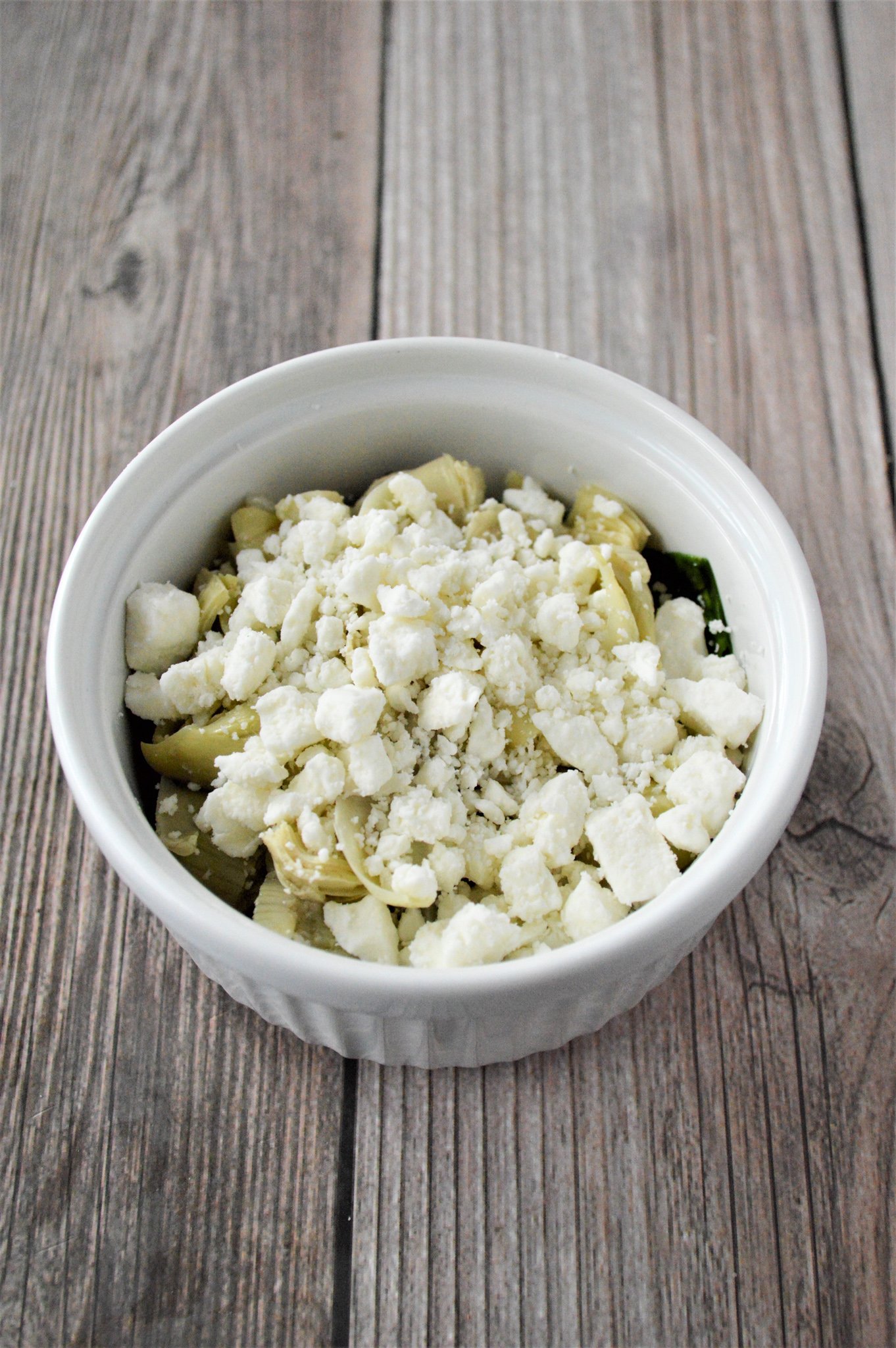Delicious & Easy Greek Baked Eggs with Feta & Spinach: Your Healthy Mediterranean Meal
Indulge in the vibrant flavors of the Mediterranean with these delightful Greek Baked Eggs. This incredibly satisfying dish expertly combines nutrient-rich eggs with tangy feta cheese, crisp red onion, fresh spinach, and tender artichoke hearts, creating a wholesome meal perfect for any time of day. Whether you’re craving a healthy brunch, a quick and fulfilling lunch, or a light yet flavorful dinner, these baked eggs are a fantastic choice. They are remarkably easy to prepare, allowing you to adapt the ingredients to your personal taste and whatever fresh produce you have on hand, making it an ideal meal for one or a crowd.

Why You’ll Love These Healthy Greek Baked Eggs
Eggs are a true superfood, providing a wealth of high-quality protein, choline, folate, iron, and zinc. Incorporating them into your diet regularly is a smart move for your health, and these Greek-style baked eggs offer a delicious and exciting way to do just that. This dish takes the humble egg and elevates it with a symphony of Mediterranean flavors.
This recipe shines as a perfect choice for various reasons:
- Healthy & Nutritious: Bursting with protein from eggs and vitamins from fresh vegetables, it’s a balanced and wholesome meal.
- Quick & Easy: Prepared and cooked in minutes, it’s ideal for busy mornings or weeknight meals.
- Versatile & Customizable: Easily swap or add ingredients based on your preferences or what you have available.
- Great for Leftovers: A fantastic way to utilize leftover roasted vegetables or greens that need to be used up.
- Simple to Scale: The recipe is designed for a single serving but can be effortlessly doubled or tripled to feed more people, making it suitable for family breakfasts or entertaining guests.
For those who love egg dishes, my family also enjoys these other fantastic recipes: Southwestern Greek Yogurt Deviled Eggs, a flavorful twist on a classic; Cheesy Black Bean Salsa Verde Egg Bake, a hearty and spicy option; Mediterranean Vegetable Frittata, perfect for meal prep; and a quick Mediterranean Egg Scramble.

Essential Ingredients for Your Greek Baked Eggs
Creating these flavorful Greek Baked Eggs requires just a few simple, fresh ingredients. Here’s what you’ll need to gather:
- Eggs: For this single-serving recipe, I recommend using two large, high-quality free-range eggs. They are the star of the show, providing a rich, creamy texture when baked. If you’re cooking for more people, simply adjust the quantity of eggs accordingly.
- Red Onion: Finely chopped red onion adds a mild, sweet, and slightly pungent flavor that complements the eggs beautifully without overpowering them. It becomes tender and sweet when sautéed. Substitution Tip: Shallots or leeks offer a similar delicate flavor, or you can use regular sweet onion. For a fresh garnish, green onions added at the very end are also a great option.
- Spinach: I prefer baby spinach for its tender leaves and quick cooking time. It wilts down easily and provides a boost of iron and vitamins. Substitution Tip: Regular spinach works perfectly; just give it a rough chop before sautéing. You could also experiment with other leafy greens like Swiss chard or kale for an added nutritional punch.
- Artichoke Hearts: Three chopped artichoke hearts add a distinct Mediterranean tang and a delightful texture. I typically use canned or jarred artichoke hearts (packed in water or oil), drained and chopped. Flavor Tip: If you’re not a fan of artichokes, feel free to omit them or swap them for sun-dried tomatoes or olives for a different Greek-inspired flavor.
- Feta Cheese: Crumbled feta cheese is essential for that authentic Greek taste. Its salty, briny flavor and crumbly texture melt slightly in the oven, creating pockets of deliciousness. Substitution Tip: If feta isn’t your favorite, a sprinkle of grated Parmesan or a soft goat cheese could offer a different but equally delicious profile.
- Extra Virgin Olive Oil: A tablespoon of good quality olive oil is used for sautéing the vegetables, adding a foundational layer of flavor characteristic of Mediterranean cuisine.
- Fresh Parsley (for garnish): A sprinkle of fresh chopped parsley adds a burst of freshness and color.
- Crushed Red Pepper (optional): For those who enjoy a little heat, a pinch of crushed red pepper flakes as a garnish adds a delightful kick.
Please refer to the recipe card below for precise ingredient measurements and detailed preparation instructions.

Step-by-Step Guide: How to Make Greek Style Baked Eggs
Making these delicious Greek Baked Eggs is simpler than you might think. Follow these steps for a perfectly cooked, flavorful dish:
Step 1: Preheat & Sauté the Aromatics and Greens. Begin by preheating your oven to 375 degrees F (190 degrees C). While the oven heats, warm a tablespoon of extra virgin olive oil in a small skillet over medium heat. Add the finely chopped red onion and sauté for 3-5 minutes until it becomes translucent and tender, releasing its sweet aroma. Next, stir in the baby spinach. Cook for another 1-2 minutes, just until the spinach wilts down. Remove the skillet from the heat.

Step 2: Layer the Base. Transfer the sautéed onion and spinach mixture evenly into the bottom of a small oven-safe ramekin or individual baking dish. This creates a flavorful bed for the eggs.

Step 3: Add Artichokes. Evenly distribute the chopped artichoke hearts over the spinach and onion mixture in the ramekin. Their distinct flavor will infuse beautifully into the dish.

Step 4: Sprinkle with Feta. Generously sprinkle the crumbled feta cheese over the artichokes. The feta will become warm and slightly soft, adding its signature salty kick to every bite.

Step 5: Crack the Eggs. Carefully crack two eggs directly on top of the feta cheese and vegetables. Try your best not to break the yolks, as a runny yolk is one of the joys of baked eggs. If you accidentally break one, don’t worry – it will still taste delicious!

Step 6: Bake to Perfection & Serve. Place the ramekin gently into your preheated oven. Bake for approximately 12-15 minutes, or until the egg whites are set and the yolks reach your desired level of doneness (I love a soft, runny yolk!). Carefully remove the hot ramekin from the oven. Garnish immediately with fresh chopped parsley and, if desired, a little extra crumbled feta cheese or a pinch of crushed red pepper flakes. Serve warm and enjoy!

How Long Should You Bake Eggs in the Oven for the Perfect Texture?
The baking time for eggs in the oven can vary based on your oven, the size of your ramekin, and your preferred yolk consistency. For these Greek Baked Eggs, I generally recommend baking for 12-15 minutes at 375 degrees F (190 degrees C). This timing typically yields beautifully set whites with a wonderfully soft, runny yolk – ideal for dipping warm pita bread or crusty artisan toast.
If you prefer a firmer yolk or a more thoroughly cooked egg, you can extend the baking time by an additional 3-5 minutes. Just be sure to keep a close eye on them to prevent overcooking, which can lead to a rubbery texture. The key is to remove them from the oven as soon as they reach your desired doneness.
Creative Ways to Customize Your Greek Baked Eggs
One of the best aspects of this Greek Baked Eggs recipe is its incredible adaptability. Don’t hesitate to get creative and personalize it to your liking or to use up ingredients you have on hand:
- Add More Vegetables: Beyond spinach and artichokes, many other vegetables would be delicious. Consider adding roasted red peppers, diced zucchini, cherry tomatoes, sliced mushrooms, or even some leftover roasted potatoes. Sauté harder vegetables briefly before adding them to the ramekin.
- Boost with Fresh Herbs: Fresh herbs truly elevate the Mediterranean flavor profile. Sprinkle in some fresh parsley (as suggested), oregano, dill, basil, or thyme either into the vegetable mix or as a vibrant garnish.
- Creamier Texture with Greek Yogurt: For an extra layer of creaminess and a touch of tang, stir a tablespoon of plain Greek yogurt into your sautéed vegetables before cracking the eggs on top. It adds a lovely richness without heavy cream.
- Spice It Up: If you like a little heat, add a pinch of red pepper flakes, a dash of chili powder, or a hint of smoked paprika when you’re sautéing the red onion. This will infuse a subtle warmth throughout the dish.
- Different Cheeses: While feta is traditional, other cheeses can also work. Try a blend of mozzarella and Parmesan, or a sharper aged provolone for a different cheesy note.
- Protein Boost: For a more substantial meal, add cooked and crumbled sausage, diced ham, or shredded chicken to the vegetable base.

Pro Tips for Achieving Perfect Baked Eggs Every Time
- Adjust Servings with Ease: While this recipe is perfectly portioned for one, it’s incredibly simple to scale up. Just multiply the ingredients by two, three, or more to feed additional people. Ensure you use appropriately sized individual ramekins or a larger baking dish if making a family-sized portion.
- Gentle Egg Handling: For that desirable runny yolk perfect for dipping, crack your eggs very gently into the ramekin. If the yolk breaks before baking, it will essentially become a scrambled egg within the dish. Take your time for intact yolks!
- Avoid Overcooking for Optimal Texture: The biggest secret to delicious baked eggs is not to overcook them. Keep a watchful eye on your eggs while they’re in the oven. The moment the whites are set and the yolks are still soft and slightly jiggly, pull them out. Overcooked eggs can quickly become rubbery and lose their appeal.
- Serve Immediately: Baked eggs are best enjoyed fresh from the oven, while they are warm and the yolk is perfectly runny. Reheating can often lead to overcooked, dry eggs, so I recommend preparing them just before you plan to eat.
- Ramekin Alternatives: Don’t have ramekins? No problem! Any small oven-safe dish or individual gratin dish will work beautifully. Just ensure it’s shallow enough for the eggs to cook evenly.
- Season to Taste: Remember to season your sautéed vegetables with a pinch of salt and black pepper before adding the eggs. The feta provides saltiness, so be mindful not to over-season.

Serving Suggestions for Your Greek Baked Eggs
These Greek Baked Eggs are incredibly versatile and can be enjoyed in many ways. Here are some ideas to make it a complete and satisfying meal:
- Classic Dippers: The runny yolk is perfect for dipping. Serve with warm pita bread, crusty sourdough toast, a fresh baguette, or even some garlic bread.
- Light & Fresh: Pair it with a simple green salad dressed with a lemon-herb vinaigrette for a refreshing contrast.
- Hearty Meal: For a more substantial dinner, serve alongside a portion of quinoa, couscous, or a side of roasted Mediterranean vegetables like bell peppers and zucchini.
- Breakfast Bowl: Turn it into a breakfast bowl by adding a spoonful of Greek yogurt or a drizzle of tzatziki sauce on the side.
- Spice It Up: A dash of hot sauce or a sprinkle of Aleppo pepper can add a nice kick for those who like heat.
Storage and Reheating Tips for Leftovers
While Greek Baked Eggs are undeniably best served immediately, sometimes you might have leftovers or wish to prepare a component ahead of time. Here’s how to handle them:
- Storing Leftovers: If you have any leftovers, allow the eggs to cool completely before transferring them to an airtight container. They can be safely stored in the refrigerator for up to 2 days. Keep in mind that the yolks will likely firm up further upon cooling.
- Reheating: To reheat, gently microwave the eggs on a medium setting until just warmed through. Be cautious not to overcook them, as this will make the eggs rubbery and less enjoyable. The texture will not be as ideal as freshly baked, especially the yolk, which will no longer be runny. For best results, it’s always recommended to make these fresh.
- Meal Prep for Vegetables: If you want to save time, you can sauté the red onion and spinach ahead of time. Store the cooked vegetable mixture in an airtight container in the fridge for up to 3-4 days. When ready to bake, simply add the artichokes, feta, and eggs to a ramekin with the pre-cooked vegetables and proceed with baking.
Frequently Asked Questions (FAQs)
- Can I use frozen spinach? Yes, you can! Thaw it completely and squeeze out as much excess water as possible before adding it to the skillet with the red onion. This prevents the dish from becoming watery.
- Is this recipe suitable for a low-carb diet? Absolutely! With protein-rich eggs and plenty of vegetables, this dish is naturally low in carbohydrates. Pair it with a side salad instead of bread if you’re strictly counting carbs.
- Can I prepare this dish in advance? You can prepare the sautéed vegetable base (onion, spinach, artichoke) ahead of time and store it in the refrigerator. When you’re ready to eat, simply add the feta and crack the fresh eggs on top, then bake. I don’t recommend cracking the eggs into the ramekin and storing them unbaked, as this can affect the egg’s texture.
- What kind of ramekin should I use? A standard 6-8 ounce (180-240 ml) oven-safe ramekin or individual gratin dish is perfect. Ensure it’s deep enough to hold the ingredients and two eggs without overflowing.
- Can I add other spices? Yes! A pinch of dried oregano, a dash of garlic powder, or a touch of black pepper can enhance the flavors further. Add them when sautéing the vegetables.
More Delicious Egg Recipes to Explore
Beef
Southwestern Taco Egg Muffins
Vegetarian
Breakfast Egg Muffins
Appetizers
Southwestern Greek Yogurt Deviled Eggs
Breakfast
Vegetarian Breakfast Egg Burritos
Tried this recipe? Leave a star rating and comment below! Subscribe to my newsletter or follow me on
Facebook,
Instagram, or
Pinterest for the latest.
Greek Baked Eggs
Julia Jolliff
10 minutes
12 minutes
22 minutes
1

Saved
Pin
Ingredients
-
2 eggs -
1/4 cup red onion, finely chopped {you can sub sweet onion, leeks or shallots} -
1 cup baby spinach {you can sub in swiss chard or kale} -
1 tablespoon extra virgin olive oil -
3 artichoke hearts, chopped -
1/4 cup feta cheese, crumbled {extra for garnish} -
Crushed red pepper for garnish, optional -
Fresh parsley for garnish
Instructions
-
Preheat the oven to 375 degrees F (190 degrees C).
-
In a medium skillet heat the olive oil over medium heat. Sauté the red onion until tender, then stir in baby spinach and sauté until wilted. Remove from heat and place the spinach and onion in a small ramekin. Top with chopped artichoke hearts, then feta cheese, and then carefully crack the two eggs on top. Bake at 375 degrees F for approximately 12-15 minutes (or until eggs are cooked to your preference). Remove from the oven and top with fresh parsley and additional feta. Serve immediately.
Notes
- This recipe serves one, but can be easily doubled or tripled to feed larger numbers.
- Break the eggs gently into the ramekin to avoid breaking the yolk; otherwise, you risk it becoming a bit scrambled. The joy of baked eggs is dipping some fresh bread into the runny yolk.
- To avoid rubbery eggs, do not overcook them. Don’t walk away from the oven; instead, keep an eye on the egg as it bakes and remove it from the oven when the yolk is still runny.
- This is a dish best served fresh, as reheating will only result in overcooked eggs. So I like to serve it warm, straight from the oven.
- I have used a ramekin to bake these eggs; however, if you don’t have ramekins, use a small oven-proof dish instead.
Nutrition
Carbohydrates: 7g,
Protein: 18g,
Fat: 31g,
Saturated Fat: 10g,
Polyunsaturated Fat: 3g,
Monounsaturated Fat: 15g,
Trans Fat: 0.03g,
Cholesterol: 361mg,
Sodium: 589mg,
Potassium: 371mg,
Fiber: 1g,
Sugar: 2g,
Vitamin A: 3447IU,
Vitamin C: 11mg,
Calcium: 273mg,
Iron: 3mg
Nutrition information is automatically calculated, so should only be used as an approximation.
Tried this recipe?Mention @acedarspoon or tag #acedarspoon!
